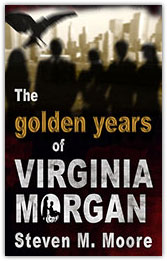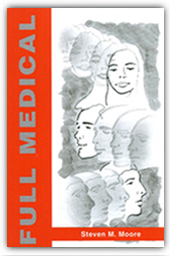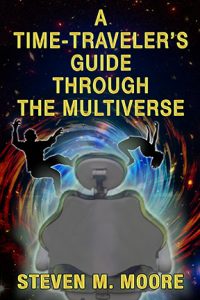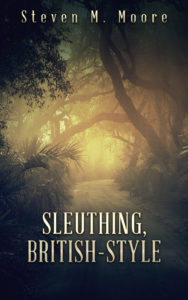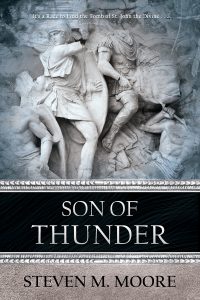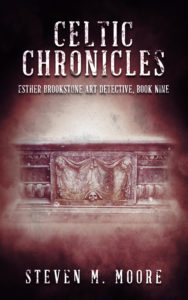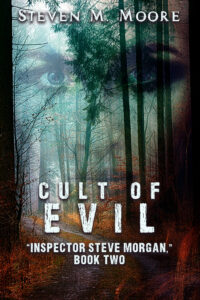The Big Five’s reminders I’ve recently received…
Wednesday, October 4th, 2023I tried traditional publishing a bit. While my two small presses gave me some TLC, and I met some new friends among their authors, there wasn’t enough to keep me hitting my head against the wall. I returned to self-publishing, specifically with Draft2Digital (now merged with Smashwords).
Sometimes I get reminders that this was a wise decision. The formulaic old mares and stallions in the Big Five traditional publishing conglomerates are struggling to keep relevant. Patterson pathetically pimping his most recent book (one always wonders how much of his novels are written by his co-authors!) in prime-time TV is one huge reminder. The lawsuit against the creators of ChatGPT by the Authors Guild (a pawn of the Big Five) and many of these same old mares and stallions is ill-conceived as well. Are they going to chase after every maker of AI software? They’d be better off getting laws passed that make it as illegal to use AI as it is to pirate books.
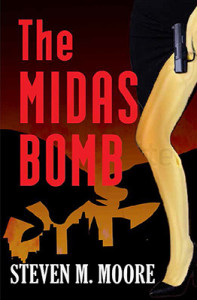 And then there’s Amazon. While the above gave me pause, what the big Bezos bot and his minions send to my Kindle are ubiquitous reminders of the Big Five’s complicity in trying to ensure that no matter how, they’ll scam the American public. Daniel Silva’s new book The Collector reminded me like a splash of ice water to the face that the Big Five aren’t above using any technique to sell books. Silva’s book not only has a similar title—legal because titles can’t be copyrighted (mine might have been the same as some preceding novels’ as well)—from the hype in the Amazon’s ad, it seems to have a similar plot.
And then there’s Amazon. While the above gave me pause, what the big Bezos bot and his minions send to my Kindle are ubiquitous reminders of the Big Five’s complicity in trying to ensure that no matter how, they’ll scam the American public. Daniel Silva’s new book The Collector reminded me like a splash of ice water to the face that the Big Five aren’t above using any technique to sell books. Silva’s book not only has a similar title—legal because titles can’t be copyrighted (mine might have been the same as some preceding novels’ as well)—from the hype in the Amazon’s ad, it seems to have a similar plot.
 My novel is evergreen—i.e., it’s as entertaining and fresh as the day I finished the manuscript (it’s in the “Detectives Chen & Castilblanco” series, if you’re interested), published in 2009, not 2023 like Silva’s. I have no right to complain to Mr. Silva, although I suspect he wouldn’t give a rat’s ass if I did, and I suspect that his publisher will sell many more copies than I ever will even though his story might be as formulaic as other Big Five’s. I also don’t believe that Mr. Silva read my novel and decided to write something similar.
My novel is evergreen—i.e., it’s as entertaining and fresh as the day I finished the manuscript (it’s in the “Detectives Chen & Castilblanco” series, if you’re interested), published in 2009, not 2023 like Silva’s. I have no right to complain to Mr. Silva, although I suspect he wouldn’t give a rat’s ass if I did, and I suspect that his publisher will sell many more copies than I ever will even though his story might be as formulaic as other Big Five’s. I also don’t believe that Mr. Silva read my novel and decided to write something similar.
This is just something mystery/thriller writers have to expect will occur from time to time. If only because situations human beings face aren’t unique, stories from two or more different authors can be similar. My novel deals with stolen art, multiple paintings, but it focuses on what they’re used for. Apparently Silva’s only deals with one, although that’s not important. There’s a woman involved in both books—from Silva’s ad, his seems to be more of a femme fatale like mine in The Midas Bomb; mine in The Collector is a bit more ordinary and more interesting as a consequence, in my opinion. Silva’s plot (using only the information from the ad) seems a lot simpler (read: insulting to one’s intelligence), which might also be a negative for many readers (including me!).
I’ve never been motivated to read anything by Mr. Silva. His fiction, like most peddled by the Big Five, doesn’t appeal to me. But I’m happy to see that I can construct a complex story that just might be similar to one written by a Big Five writer later. That in itself motivates me to keep writing. Those Big Five formulaic authors need new ideas after all!
***
Comments are always welcome. (Please follow the rules on the “Join the Conversation” web page.)
“Detectives Chen & Castilblanco” series. These two NYPD detectives’ cases go from local settings in the Big Apple to those of national and international settings. The nine-book series (one novel is free—see the “Free Stuff & Contests” web page to download Defanging the Red Dragon) will provide readers hours of exciting mystery/thriller entertainment.
Around the world and to the stars! In libris libertas!
